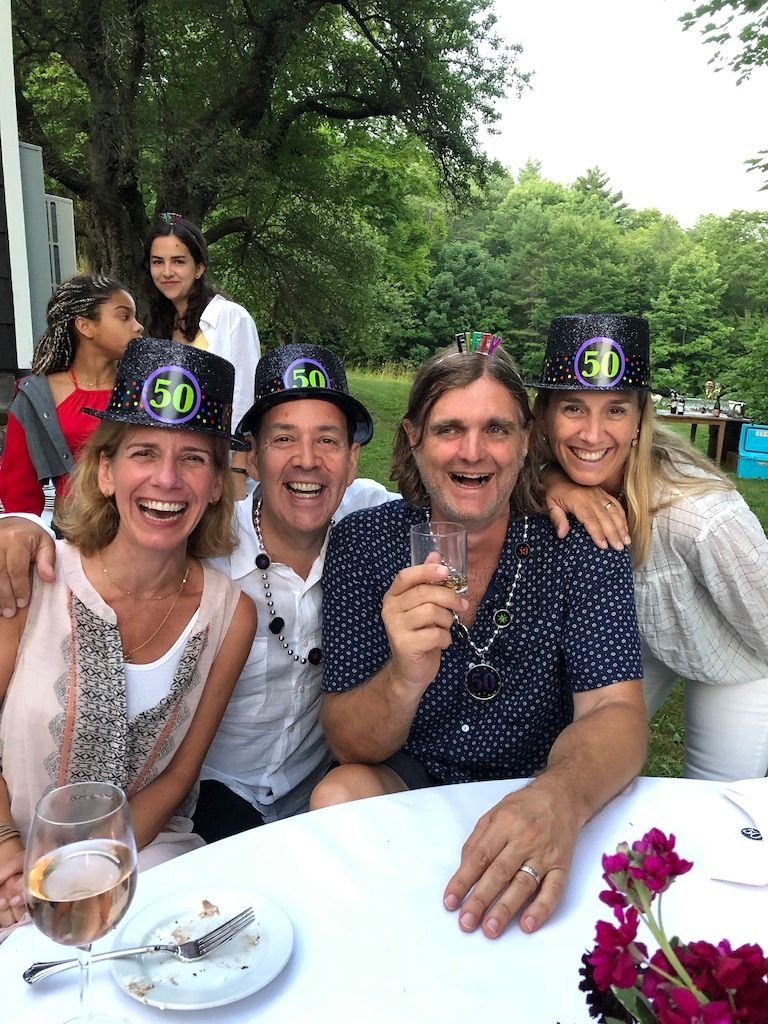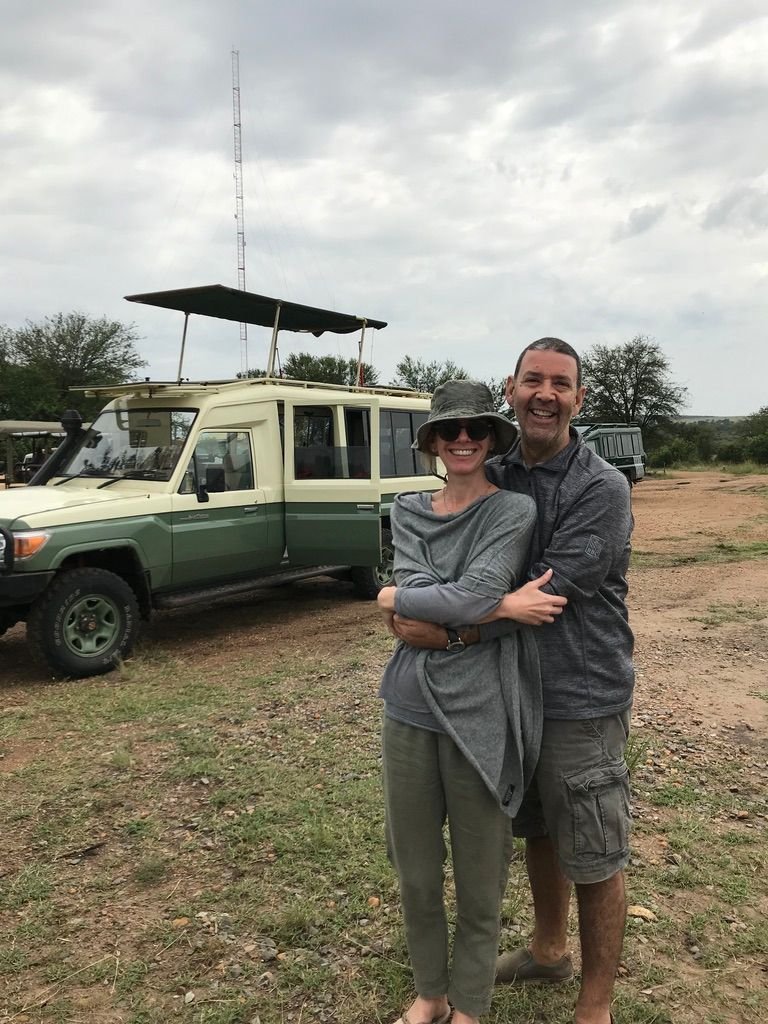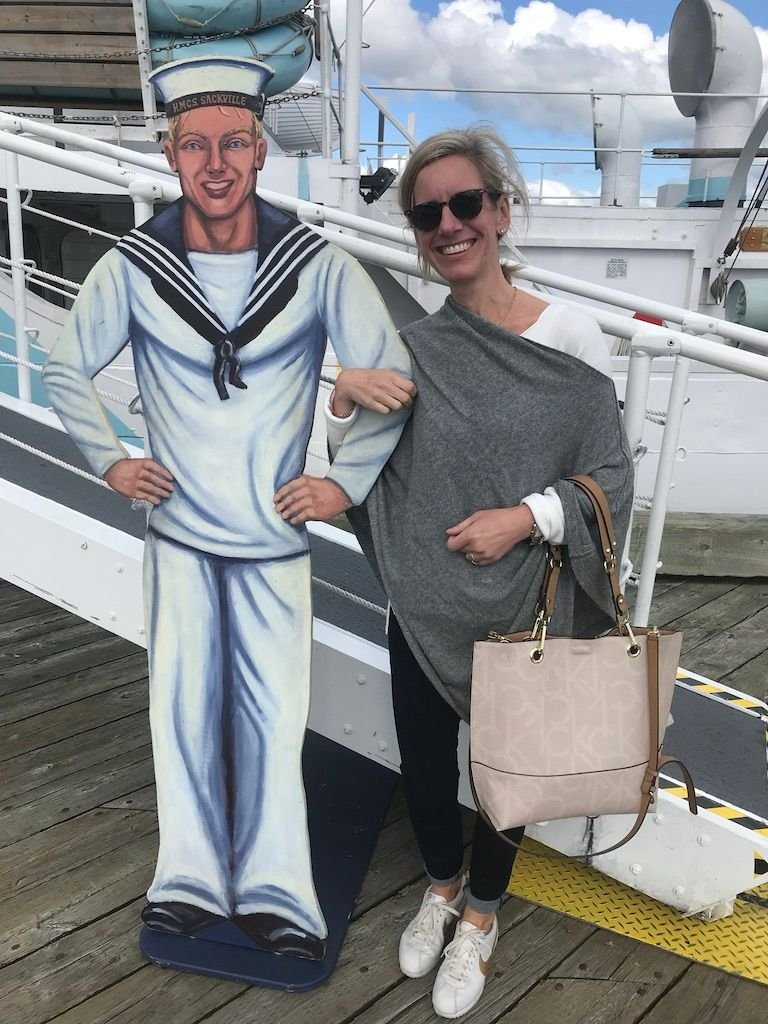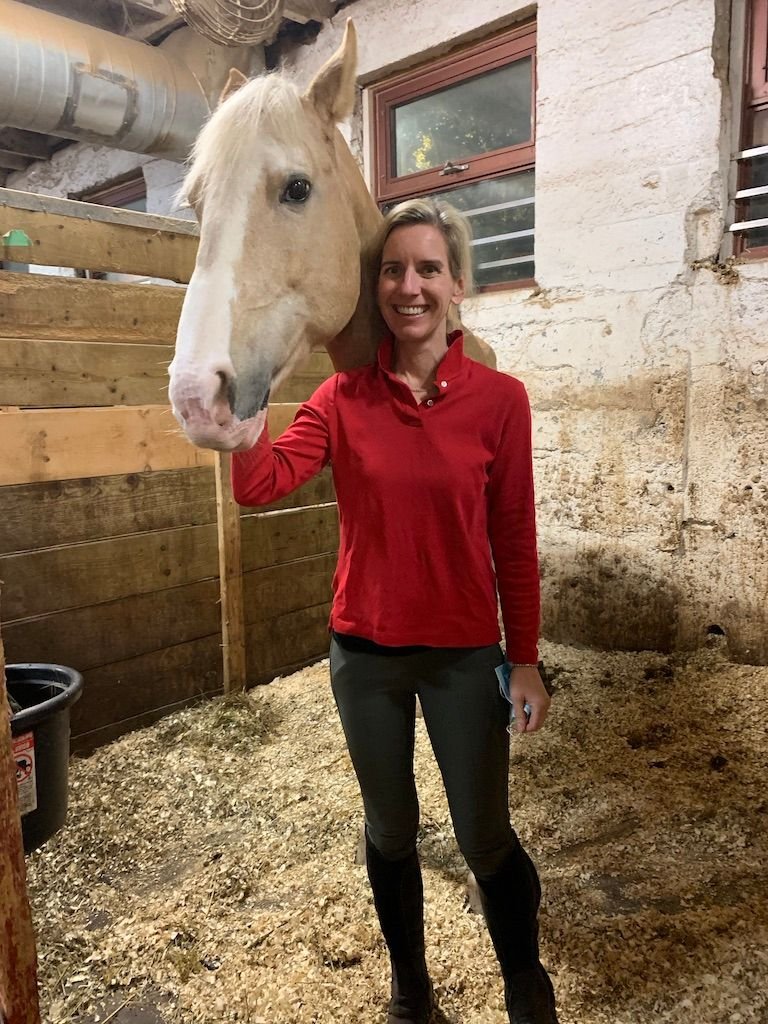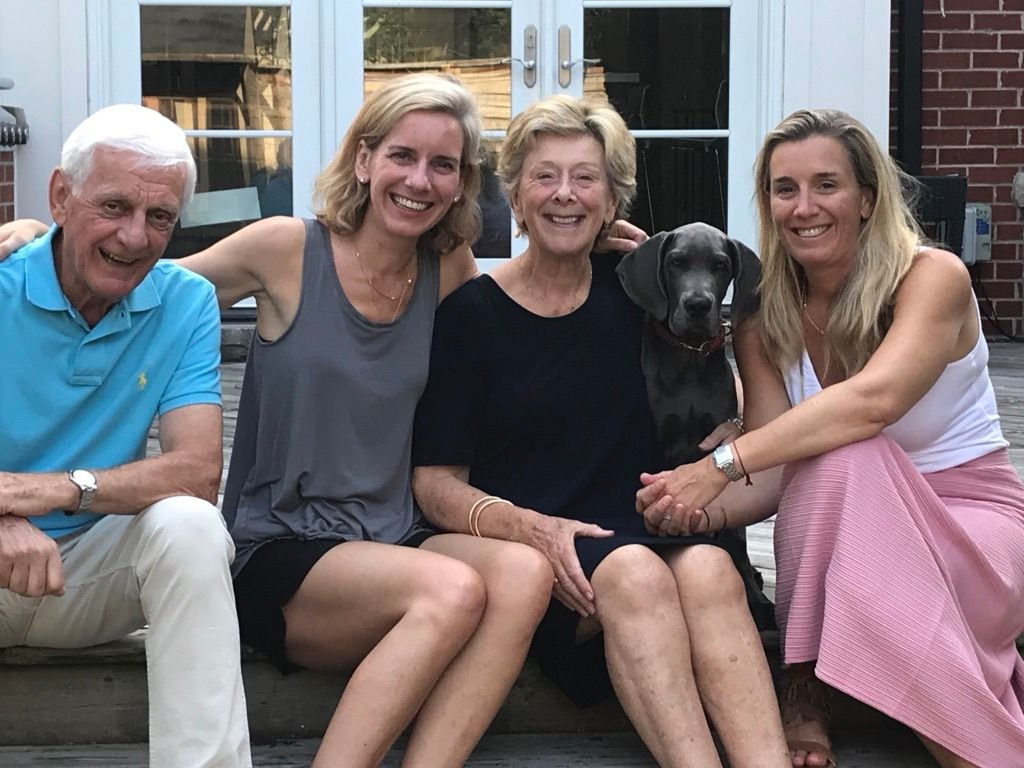Why Not Me?
Why Not Me?
written by Linsday Ireland, Author of the memoir Why Not Me
I believe in the power of perspective; it has helped me live my best life.
Living with three autoimmune diseases, this outlook has proven its value many times.
When I was 11 years old, I underwent life-saving surgery related to ulcerative colitis. The surgery resulted in an ileostomy. In the 1980s, hospitals weren’t as adept at dealing with the emotional aspects of surgery. Being so sick, young, and heavily medicated, I didn’t understand what the bag would look like until I left the recovery room and saw my belly.
I had been told my "stoma" would look like a rosebud. Instead, through a haze of painkillers, I saw a bleeding, gory blob with black stitches that looked like it was spewing snakes. I was horrified, and so were my parents.
Seeing our initial shock, a nurse explained that the 12’’ clear bag was to enable the staff to see my stoma and output, and my stoma would become less inflamed and bloody in a few days. Also, I could use a 10’’ opaque bag when I went home. Somewhat less bewildered, I started to adjust to my bag. My cut and paste skills came in handy.
Just entering adolescence, I wanted to be like everybody else – physically, I presented as "normal", but I was scared of being thought of as smelly, dirty, or less feminine; I was secretive about my bag except with my family and a couple of close girlfriends.
A year after my initial surgery, I was told by my doctors that "I had the best chance they had ever seen" of having a successful reconnection surgery, so, with high expectations, I underwent two operations to get rid of the bag.
My body didn’t agree with the doctor’s predictions; surgery once again saved the day.
Both rounds of ostomy surgery saved my life, and, even as a child, I was grateful that such operations existed. I may have been worried about others perceptions of the bag, but I never thought of it as a "disability." I appreciated that it allowed me the ability to live a very full life.
It wasn’t until my 20s, when I began talking therapy and explored buried sadness, fear, embarrassment, and anger. It was hard work, freeing, and gave more depth to the power of my perspective.
The therapy stood me in good stead when I was diagnosed with my next autoimmune disease.
My ostomy experience came in handy when, at 32 years old, I learned I had Multiple Sclerosis (MS). Fearful for my mobility, I focused on everything I could still do. I began researching traditional treatment options, as well as holistic approaches to help manage my immediate and possible long-term symptoms.
By removing my colon, and living with an ostomy, I hadn’t needed any medication for my ulcerative colitis. MS was different. Medications could significantly benefit my long-term prognosis, so I started taking a prescribed treatment therapy. I also cut gluten out of my diet. Not only did the numbness in my toes disappear, so did any bouts of diarrhea.
My fitness regime had to change, I could no longer run without leg spasms, so I walked and swam. I did weights, yoga, and stretched. After a bad MS relapse, I did 3 minutes of daily seated yoga as I slowly built back up my strength. I knew that doing a little bit, was better than doing nothing. I had learned this in the hospital when recovering from many bowel surgeries. Little bits added up to a lot, and I thought of them as successes instead of limitations. Fortitude is built by many acts of resilience, big or small. We can be our own hero by knowing we did the best we could with what we had on any given day.
(story continues below)
My new health challenges brought up feelings from childhood; I tapped into my love of English, history, and psychology and used a notebook to chronicle my thoughts. I had lots to write and talk about; reconnecting with my therapist was a no brainer! As an adult patient, finding my voice was imperative.
Empowered by my independence, I enrolled in a writing course and was told that my story might help others. Busy with life, I filed that idea, and continued writing as catharsis; slowly, my story started taking shape.
Recounting many good times, I was reminded of why I feel lucky. Over the years, several people have asked me "Don’t you wonder, why me?" I don’t. My response is, "Why not me?" This became the title of my memoir.
Maybe I drew the short straw for autoimmune diseases, but I don’t think of it that way. My good outweighs the bad, and every day I try to remember a couple of things that I am grateful for. Sometimes I am thankful for big things, like the love of my family, sometimes it is the fact that a hummingbird visited our back deck. Finding joy in small things is a gift. It’s a gift that keeps on giving, as gratitude also builds resilience. It is a great reminder that our mind is strong, and our outlook is a choice.
By writing a memoir, I have laid my vulnerabilities bare. This is new for me with regards to my ostomy. For years, I was embarrassed, ashamed, and secretive about that part of my medical history. I learned the value of openness when I was diagnosed with MS. A sense of community led me to a connectiveness that I lacked with my ostomy. I felt less alone. This also built resilience. There is a strength that comes in being part of a team working toward a common goal.
Now, I want to build ostomy awareness. People can’t understand what they don’t know. With knowledge, perspectives can be changed, and we have the power to shape the narrative.


